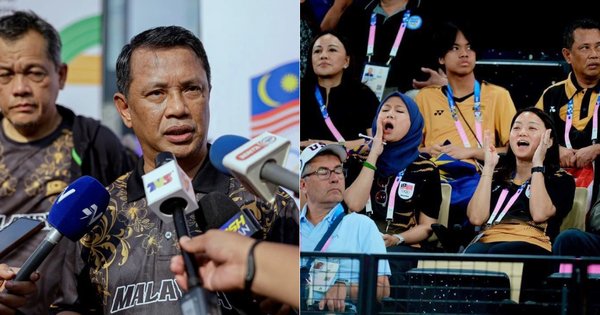## “I Have A Special Quota” — OCM Chief Norza Defends Bringing Family To Olympics 👨👩👧👦🏆
The sporting world is often a stage for both athletic prowess and societal commentary, and the recent Paris Olympics were no exception. The Games, a grand spectacle of global athleticism, were also the backdrop for a tempest in a teapot, a controversy ignited by the presence of the family of Olympic Council of Malaysia (OCM) chief, Datuk Seri Norza Zakaria. Photos of Norza’s family enjoying the Games went viral, prompting a public outcry and a heated defense from the OCM head.
The controversy, swirling around the ethical boundaries of bringing family to international sporting events, raised questions about privilege, transparency, and the potential for misuse of resources. While the optics of the situation drew immediate public scrutiny, Norza’s justification for his family’s attendance unveiled a complex interplay of organizational structures, sporting norms, and a culture of perceived entitlement.
A Tempest in a Teapot? 🍵
Norza, the figure at the heart of this storm, defended his decision, arguing that his family’s presence was justified by their role as “ambassadors” for Malaysia, showcasing the nation’s cultural tapestry on the global stage. He emphasized the importance of “promoting Malaysian values” through their presence at the Games.
However, critics countered with a barrage of questions about the transparency of the family’s travel arrangements. The justification of “cultural ambassadors” sparked further debate, with some labeling it as a disingenuous attempt to deflect criticism. They argued that the family’s presence appeared to be more about personal pleasure than diplomatic duty.
The Ethical Conundrum: Privilege and Transparency 🤔
The controversy ignited a larger conversation about ethical boundaries within the sporting world. The question at the heart of the matter was a simple one: Is it acceptable for high-ranking officials to bring their families to international sporting events on the taxpayer’s dime? While there are no explicit regulations prohibiting such practices, the lack of transparency surrounding the logistics and funding of the family’s trip fueled the flames of public dissent.
The criticism wasn’t solely directed at Norza, but at a broader culture within the OCM and the sporting world, where a perceived lack of accountability and transparency fuels suspicions of favoritism and entitlement. This situation, while specific to the Malaysian context, mirrored broader concerns about the potential for abuse of power within sporting organizations.
A Symphony of Voices: Public Discourse and the Power of Social Media 🗣️
The viral nature of the photos, fueled by the ever-present power of social media, catapulted the controversy into the public sphere. The ease with which images and opinions circulate online transformed the debate from a whisper in the corridors of sporting power to a full-blown public discourse.
Social media platforms became a battleground for competing narratives, with individuals expressing their opinions and frustrations through comments, memes, and viral posts. This amplified public scrutiny, forcing the OCM to confront the criticisms head-on. The situation highlighted the power of social media in shaping public perception and holding individuals accountable for their actions.
Beyond the Headlines: A Deeper Examination of the Controversy 🔍
The “I Have A Special Quota” controversy wasn’t merely a story about a family trip to the Olympics; it was a reflection of a deeper societal struggle. It exposed a rift between the privileged few who hold positions of power within the sporting world and the masses who view the Games as a symbol of athletic achievement and national pride.
This case study, while specific to Malaysia, resonated with broader concerns about transparency and accountability within the global sporting community. It served as a reminder that sporting organizations are not immune to the scrutiny and demands for ethical behavior that govern other spheres of public life.
The Road Ahead: A Call for Transparency and Accountability 🛣️
The controversy surrounding Norza’s family trip to the Paris Olympics offers a valuable opportunity for introspection within the OCM and other sporting organizations. It underlines the need for clear guidelines regarding the use of public funds for travel and attendance at international sporting events.
A transparent and accountable system that clearly outlines the criteria for family attendance at such events is crucial to prevent future controversies. Moreover, organizations should prioritize fostering a culture of ethics and accountability, ensuring that the actions of officials reflect the values of the sport and the public they serve.
The Paris Olympics, while a celebration of athleticism, also became a stage for a debate about ethics and accountability. The “I Have A Special Quota” controversy, though seemingly trivial, served as a reminder that transparency and ethical conduct are essential components of any organization, especially those operating in the public eye.
